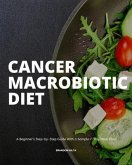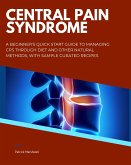Data released by the National Health and Nutrition Examination Survey showed the prevalence of severe obesity was 11.5% among U.S women in 2017-2018 (Hales, Carroll, Fryar, & Ogden, 2018). Obesity results in serious health problems among adults including end-stage renal disease, respiratory issues, and coronary heart disease.
Besides, pregnant overweight women face several pregnancy complications like gestational diabetes mellitus (GDM), hypertension, congenital defects, fertility issues, and preeclampsia.
However, you can get rid of obesity and lose weight quickly by following the HCG diet plan, which is claimed to reduce up to 0.5-1 kg of weight per day. The process is highly efficient, safe, and secure and causes fast weight reduction among pregnant women without causing any hunger or weakness.
HCG refers to human chorionic gonadotropin, which is a hormone pregnant women release in large quantities during the early stages. Often used by doctors and gynecologists to test pregnancy, HCG can also treat fertility issues and was proposed as a weight-loss tool in 1954 by Albert Simeons (Palsdottir, 2018).
The HCG diet combines severe calorie restriction (500 calories/day) with the HCG hormone injections (Zeratsky, 2019). You can achieve dramatic weight loss by using HCG products in various forms including pellets, drops, and sprays.
In this HCG diet guide, you will discover:
¿ What is HCG and who presented the idea of the HCG diet as a weight-loss mechanism
¿ How effective the HCG diet is to treat obesity
¿ What are the potential risks or side effects of using the HCG diet
¿ What researchers, nutritionists, dietitians, and doctors say about the efficiency and reliability of the HCG diet
¿ Some legal obligations of the HCG diet in the United States
¿ Final recommendation on whether to use the HCG diet or not
Dieser Download kann aus rechtlichen Gründen nur mit Rechnungsadresse in A, B, BG, CY, CZ, D, DK, EW, E, FIN, F, GR, H, IRL, I, LT, L, LR, M, NL, PL, P, R, S, SLO, SK ausgeliefert werden.









